Bengal Cat Food Secrets: What Veterinarians Recommend for Optimal Health and Coat Shine
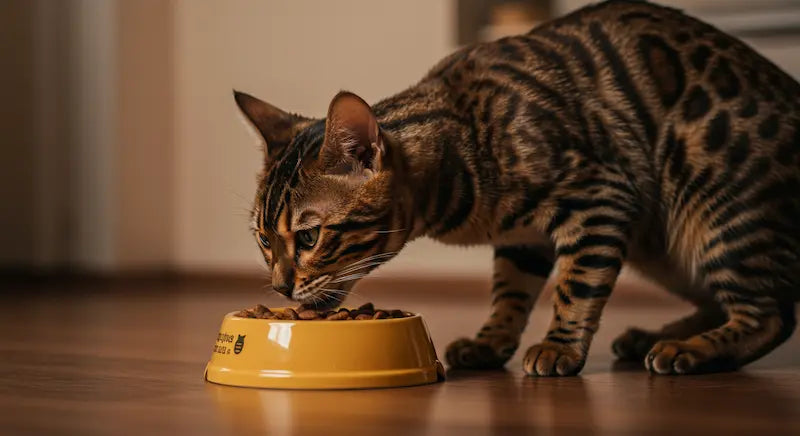
Are you captivated by the mesmerizing spotted coat and boundless energy of your exotic companion? Those distinctive markings and playful antics aren't just for show—they're hallmarks of a unique Bengal cat breed with specialized nutritional requirements unlike typical domestic pets.
Descended from wild Asian leopards, these magnificent creatures possess a genetic heritage that demands particular attention to their diet. Their muscular physiques, extraordinary agility, and trademark glossy pelts all depend on receiving precise nutritional components in appropriate quantities. Without proper nourishment, these stunning creatures may lose their lustrous appearance and signature vitality.
What exactly should you feed your spotted housemate to maintain their peak condition? Which ingredients truly matter for optimal health? How can you ensure their distinctive markings remain vivid and eye-catching throughout their lives? Veterinary experts have specific recommendations that might surprise even experienced owners.
In this comprehensive guide, we'll explore professional insights from veterinary nutritionists and specialists who understand the unique physiological needs of these special companions. You'll discover exactly what ingredients support their active lifestyle, which commercial options receive expert approval, and how to develop a feeding regimen that promotes both internal well-being and external beauty for your beloved exotic friend.
WHY PROPER NUTRITION IS ESSENTIAL FOR YOUR BENGAL CAT
Bengals aren't your average domestic felines. Descended from the Asian leopard, these athletic creatures retain many of their wild ancestors' traits, including an exceptionally high energy level and a need for nutrient-dense nourishment. Understanding their unique nutritional requirements is crucial for any owner who wants to see their companion flourish.

Meeting Their High-Energy Needs
Known for their playful, active nature—Bengals love to climb, jump, and explore their surroundings with impressive agility. This high activity level means they burn calories at a faster rate than many other breeds. Veterinarians emphasize that a Bengal cat food must provide sufficient protein and fat to fuel their energetic lifestyle.
These spotted companions require more protein than many other domestic breeds. Their muscular bodies and high metabolism demand a diet that's rich in animal-based proteins to maintain lean muscle mass and support their daily activities.
The Foundation of Bengal Health
A balanced diet does more than just fuel your pet's playtime—it's the cornerstone of their overall health. Proper nutrition supports:
-
A robust immune system that helps protect against common feline illnesses
-
Healthy skin that reduces shedding and irritation
-
Strong muscles that enable their characteristic athletic movements
-
Vibrant coat coloration that enhances their wild appearance
Veterinarians recommend focusing on high-quality protein sources (preferably animal-based), essential fatty acids (particularly omega-3s), and a balanced profile of vitamins and minerals. These nutrients work together to support your Bengal's internal health while also enhancing their external beauty.
The Critical Role of Hydration
Despite their partial wild ancestry, Bengals share one important trait with all domestic felines—they often don't drink enough water. Proper hydration is essential for kidney function, digestion, and even coat health. Incorporating moisture-rich options into their diet is one of the most effective ways to increase their water intake.
THE BEST FOOD OPTIONS FOR BENGAL CATS
With so many brands making bold claims, it can be overwhelming to determine which options truly meet your Bengal's needs. Here's what veterinarians recommend when searching for the best food for Bengal cats.

Best Dry Food for Bengal Cats
When selecting kibble for your spotted companion, veterinarians recommend looking for these key characteristics:
-
High protein content (minimum 40%)
-
Named animal protein sources as the first ingredients (chicken, turkey, fish)
-
Moderate to high fat content (15-20%)
-
Limited carbohydrates
-
No artificial preservatives, colors, or flavors.
Best Wet Food for Bengal Cats
Moisture-rich nutrition plays a crucial role in Bengal health, providing essential hydration while often containing fewer carbohydrates than dry alternatives. Wet options more closely mimic a natural prey diet in both texture and moisture content. For Bengals, whose ancestors were skilled hunters, this can satisfy not only nutritional needs but also behavioral ones.
Combining Dry and Wet Options for a Balanced Diet
Many veterinarians advocate for a mixed feeding approach. A combination of high-quality dry kibble and premium wet options often provides the ideal nutritional profile for Bengal cat food. The dry components support dental health and provide concentrated nutrition, while moisture-rich selections enhance hydration and offer dietary variety.
A balanced approach might include:
-
Morning: Portion of wet nutrition to start the day with hydration
-
Evening: Measured serving of premium dry kibble
-
Throughout the day: Small amounts of dry nutrition in puzzle feeders to satisfy hunting instincts and provide mental stimulation
This combination approach satisfies multiple needs—nutritional, behavioral, and psychological—making it ideal for the complex and intelligent Bengal breed.

TIPS FOR ENHANCING COAT SHINE AND OVERALL HEALTH
The trademark glossy, spotted coat of a Bengal requires specific nutritional support to maintain its eye-catching appearance. Veterinarians highlight several key considerations that directly impact coat quality and overall wellbeing.
Omega-3 Fatty Acids: The Key to a Lustrous Coat
The remarkable sheen you see on healthy Bengal coats is directly linked to their fatty acid intake. Omega-3 fatty acids, in particular, play a crucial role in maintaining skin health and coat shine.
Sources naturally rich in omega-3s that benefit these spotted companions include:
-
Wild-caught salmon and other cold-water fish
-
Fish oils (particularly salmon oil)
-
Flaxseed (though felines absorb animal-based omega-3s more efficiently)
Veterinarians often recommend supplementing with fish oil if your Bengal's regular diet doesn't provide sufficient omega-3s. For optimal dosing, consult with your veterinarian, as excessive amounts can cause digestive upset.
The Role of Hydration in Coat Health
Adequate hydration does more than support internal organ function—it's essential for healthy skin and coat. Dehydration can lead to dry, flaky skin and dull appearance in Bengals.
Beyond incorporating moisture-rich options, consider using water fountains for your exotic companion. Many felines, especially those with wild ancestry, prefer moving water and will drink more frequently from a fountain than a still bowl.
Some Bengals may also enjoy ice cubes added to their water or even the water left over from rinsing canned tuna (an occasional treat, not a daily addition).
Supplements to Support Coat and Skin Health
While a balanced diet should provide most nutrients, some Bengals benefit from targeted supplementation under veterinary guidance:
-
Biotin: Supports keratin production for healthy fur growth
-
Zinc: Essential for skin cell regeneration and healing
-
Vitamin E: An antioxidant that protects skin cells from damage
-
Probiotics: Support gut health, which indirectly affects coat condition
Always consult with your veterinarian before starting any supplement regimen. What works for one exotic companion may not be appropriate for another, and some supplements can interact with medications or existing health conditions.

COMMON FEEDING MISTAKES TO AVOID
Even dedicated owners can unwittingly make feeding errors that impact their Bengal's health and appearance. Veterinarians identify several common mistakes that deserve attention.
Overfeeding or Underfeeding: How to Find the Right Balance
Bengals' high activity levels can make it challenging to determine appropriate portion sizes. Their athletic build sometimes masks weight issues until they become significant.
These exotic companions should have a visible waist when viewed from above and you should be able to feel their ribs with light pressure, but not see them. Both obesity and underweight conditions can severely impact their health and coat appearance.
Most adult Bengals require between 25-30 calories per pound of body weight daily, though this varies based on age, activity level, and metabolism. Regular weigh-ins and body condition scoring with your veterinarian can help maintain optimal weight.
Avoiding Low-Quality Ingredients and Fillers
The market is flooded with products containing subpar ingredients that provide little nutritional value while potentially triggering allergic reactions or digestive issues in sensitive Bengals.
Ingredients like corn gluten meal, by-products, artificial colors, and preservatives like BHA or BHT have no place in a premium diet for these special companions. These fillers may reduce manufacturing costs, but they offer minimal nutritional benefits and can contribute to health problems over time.
When selecting Bengal cat food, scrutinize ingredient lists carefully. The first several ingredients should be named animal proteins (chicken, turkey, salmon) rather than vague terms like "meat meal" or "animal by-products."
FEEDING YOUR BENGAL FOR OPTIMAL HEALTH
Providing proper nutrition for your exotic companion isn't just about maintaining their striking appearance—it's about supporting their vibrant energy, playful spirit, and overall wellbeing. By focusing on high-quality proteins, essential fatty acids, appropriate hydration, and balanced nutrients, you're laying the groundwork for a long, healthy life for your remarkable friend.
Remember that individual Bengals may have specific preferences or needs based on their age, activity level, and health status. Regular consultations with your veterinarian can help you fine-tune your approach to feeding this remarkable breed.
Give your Bengal cat the nutrition they deserve! By exploring the recommended Bengal cat food options outlined in this guide and working closely with your veterinarian, you can ensure your stunning spotted friend thrives with a balanced, high-quality diet that supports both their internal health and their show-stopping appearance.


























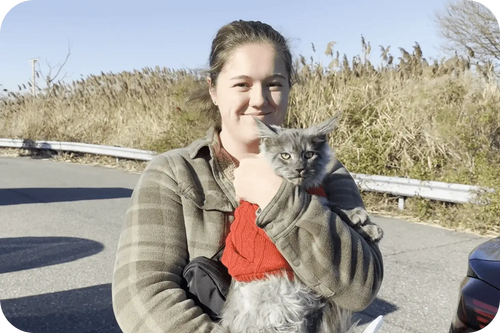
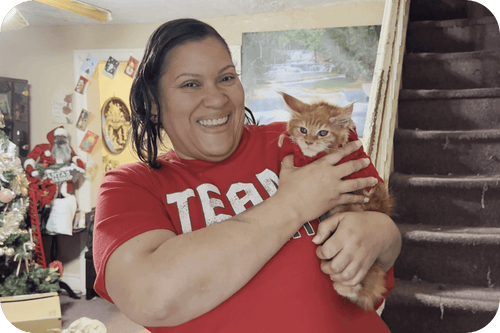
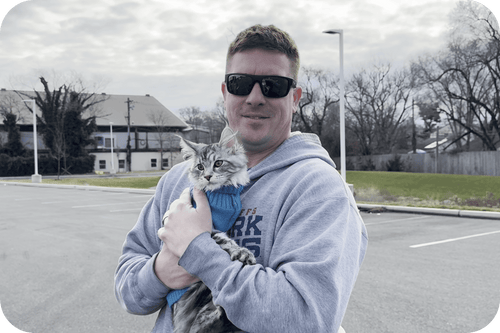

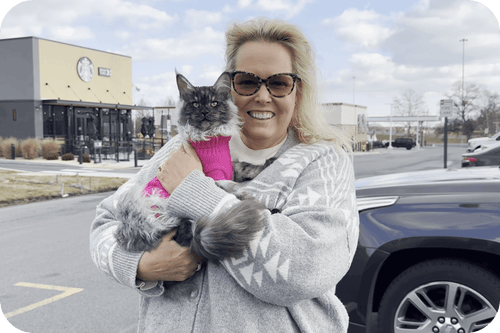





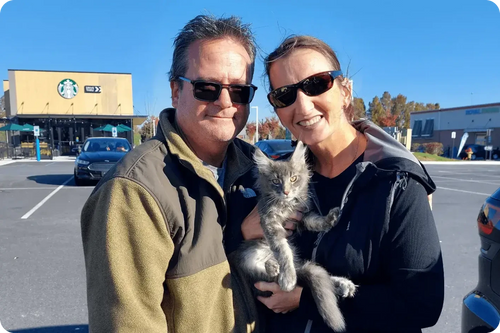
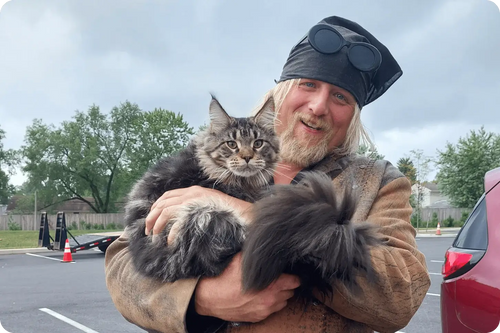


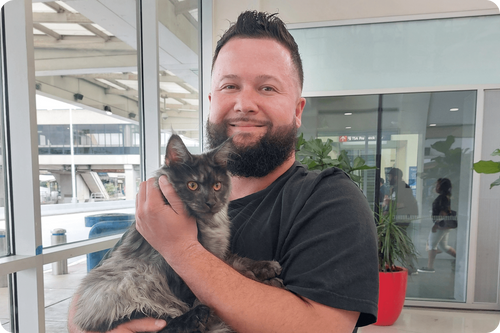












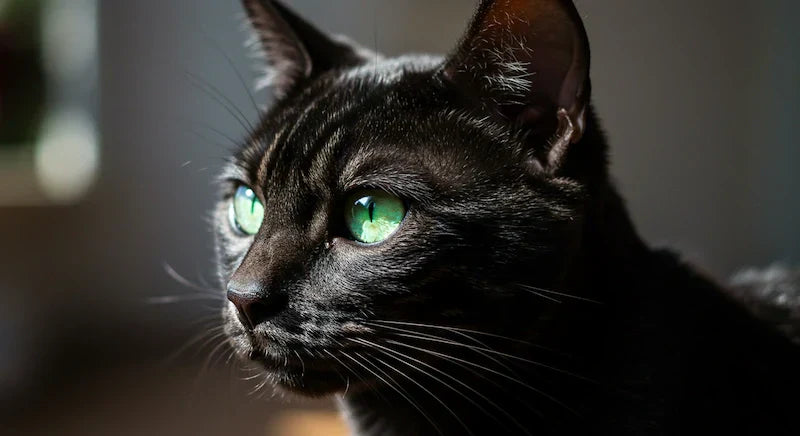
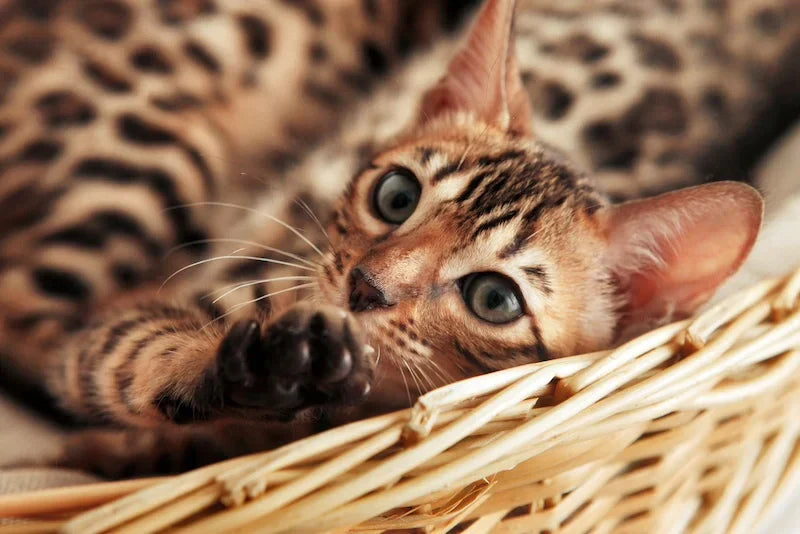
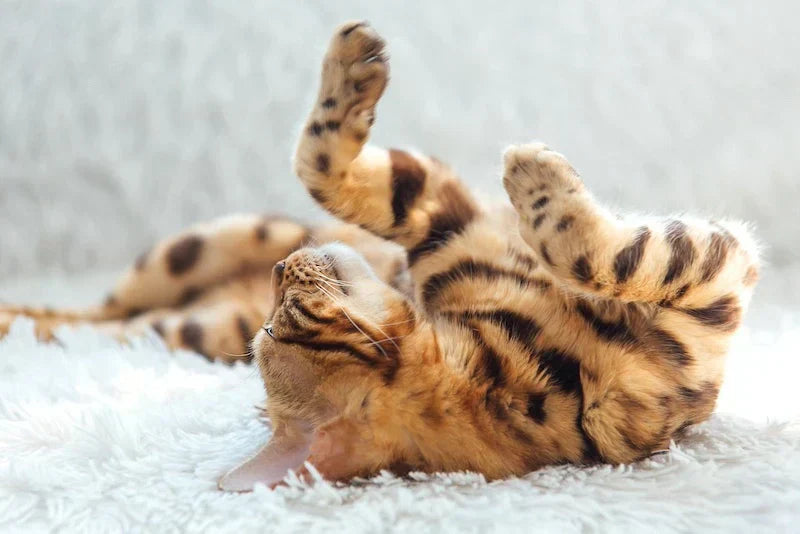
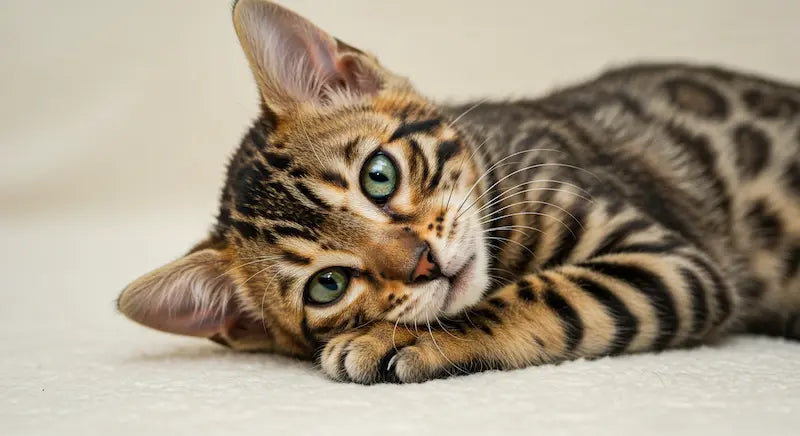




Comments(0)